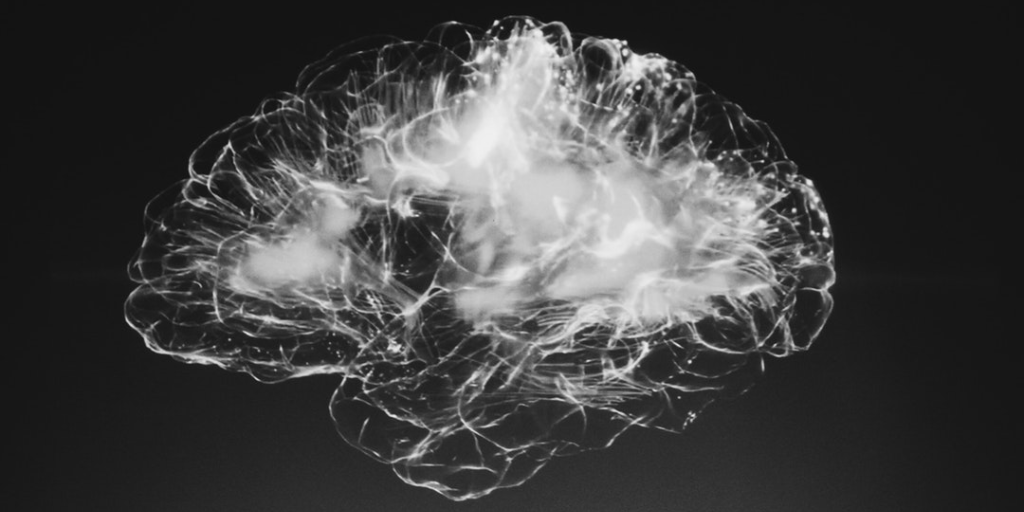A Guide To Traumatic Brain Injury Claims
June is national brain injury awareness month in Canada. It is an annual event that raises awareness about the prevalence of brain injuries in Canada.
Brain injuries are serious and can cause life-altering symptoms and challenges.
As
personal injury/disability lawyers, we have experience working with clients who have sustained traumatic brain injuries (TBI) as a result of car accidents and slip and fall accidents (or another type of personal injury). We understand that a traumatic brain injury can be a life-altering event and that the effects of a brain injury can impact a person’s ability to work. If you have sustained a TBI as a result of a personal injury, or you have a disability claim that has been denied, it is important to consult a lawyer who is familiar with these types of cases.
This blog will be a detailed look into
brain injuries and the impact they have.
What Is A Brain Injury?
According to the Brain Injury Association of Durham Region, an acquired brain injury is any damage to the brain that occurs after birth due to a traumatic event such as a blow to the head or a non-traumatic event i.e. medical event (stroke, seizure, tumors) and events where the brain has been deprived of oxygen.
As explained by Brain Injury Canada, there are 2 types of “acquired” brain injuries (ABI). The first is non-traumatic and the second is traumatic type. A non-traumatic ABI is caused by something internal or by a substance introduced into the body that damages brain tissues and includes strokes, aneurysm, seizure disorders, brain tumour, poisoning, substance abuse and opioid overdose. It can also be caused by conditions/illnesses like meningitis, encephalitis, hydrocephalus, vasculitis and hematoma to the brain. It is not caused by congenital disorders or degenerative disease such as Alzheimer’s Disease, Multiple Sclerosis or Parkinson’s Disease.
In comparison, a traumatic ABI (or TBI) is caused by external forces to the body such as a blow, bump, hit, jolt from sources such as car accidents, falls, assault, sports injuries, explosive blasts, combat injuries. A TBI can result in temporary injury or can result in more serious and long-term damage.
A concussion is a type of brain injury and is a mild brain injury. According to Ontario Brain Injury Association, a concussion can be caused by a sudden acceleration of the head and neck, resulting from a blow or contact to the body. It is noted that you need not have lost consciousness to have sustained a concussion. Symptoms can appear immediately or days following the initial injury.
What Are The Effects Of A Brain Injury?
A brain injury can result in various physical, cognitive and behavioural/emotional impairments and this is why a brain injury can interfere with the brain’s ability to perform various tasks. Impairments could be permanent or temporary.
According to the Brain Injury Association of Durham Region, common symptoms of a brain injury are:
- Physical: coordination and balance problems, chronic pain, fatigue, seizures, sleep difficulties, movement problems, full or partial paralysis.
- Sensory: vision or hearing difficulties, impairment of sense of smell and/or taste.
- Communication: word-finding problems, impaired speech, difficulty understanding oral, written or non-verbal language.
- Emotional: depression, anger management, low frustration tolerance, mood swings, difficulty expressing emotions appropriately.
- Cognitive: memory loss, memory-processing problems, problems with attention and concentration, slowed information processing, impaired judgment, problem-solving difficulties and social behavioural problems.
According to Brain Injury Canada, traumatic ABI’s often cause a
concussion and concussions are classified as either mild, moderate or severe, based on symptoms and how long they last. Symptoms of a concussion include confusion, headache, forgetfulness, loss of consciousness, balance problems/dizziness, double vision, sensitivity to light or noise, nausea, feeling sluggish, foggy or groggy, irritability, concentration and memory problems and slowed reaction time.
How Can A Brain Injury Affect My Ability To Work?
Given the numerous symptoms resulting from a brain injury, a person may develop difficulties with day to day functioning. No two brain injuries are alike but common issues people with brain injuries experience include memory loss, impaired reasoning skills, difficulty socializing, forgetfulness, difficulty controlling emotions and adapting to changes. As well, a person may also be experiencing physical symptoms such as headaches, dizziness, balance issues and have trouble with many activities of daily living. These types of symptoms can pose challenges when it comes to completed work tasks.
For example, someone who worked in a factory may have difficulty tolerating noise and lights and being around too many people at once and become dizzy and unable to operate any machinery. Or someone working in an office may find it difficult to work on a computer for long periods of time due to visual changes or may be having difficulty interacting with other people and have trouble working with coworkers. A person in a customer service role may have a reduced tolerance and be very irritable and unable to control emotions around customers.
Some people also develop psychological symptoms including depression as a result of their symptoms.
As you can see, there are many ways a brain injury can affect a person’s ability to return to normal activities of daily living. Some people may require supervision after a serious injury and require the help of an occupational therapist and caregiver.
Important Statistics
Consider these statistics from Brain Injury Canada:
- Approximately 1.5 million Canadians live with an acquired brain injury
- Brain injury is the leading cause of disability and death for Canadians under the age of 40
- The annual occurrence of ABI is more than that of Multiple Sclerosis, Spinal Cord Injury, HIV/AIDS and Breast Cancer combined
Statistics from the Brain Injury Association of Durham Region include:
- 144 new brain injuries are sustained every day in Ontario
- Every year 150,000 Canadians suffer an acquired brain injury
- It is thought that a brain injury will occur every 3.5 minutes in Canada
- Currently there are close to 500,000 people in Ontario who are diagnosed with an ABI
- Brain injuries occur 10x more often than spinal cord injuries
- More than 800 Ontarians die each year due to brain injuries
- More than 12,000 people in Ontario sustain disabling brain injuries every year
The Brain Injury Association of Durham Region also informs us that the most common cause of brain injury is motor vehicle collisions (45%) followed by falls, bicycle incidents, workplace injuries, sports, assaults and other traumatic causes, medical conditions or disease, asphyxia, poisoning, other toxins.
Why Should I Contact A Lawyer?
You may have been injured as a result of a slip and fall accident or a motor vehicle accident or another type of personal injury. A lawyer can explain to you what your rights are as an injured person. When your injury is the result of a motor vehicle accident, a lawyer can explain to you how to apply for statutory accident benefits (medical/rehabilitation benefits and income replacement benefits through your own insurance company) and help you when benefits are denied. A lawyer can also help you to commence a legal action against the at-fault driver and explain to you what the limitation period is (how long you have to sue).
If you were injured as a result of a personal injury, a lawyer will advise you of the appropriate limitation period (how long you have to sue) and will help you determine who the appropriate parties to sue are. A lawyer can help you to put the parties “on notice” and advise them that you intend to pursue a legal action against them.
You may have been receiving short-term and/or long-term disability benefits as a result of being off work due to your injury. Your insurance company may request that you participate in a gradual return to work or advise you that your benefits are being terminated because it is believed you can work in some capacity. If you are medically unable to return to work and your benefits are denied, you should know that you can fight your insurance company’s decision and pursue a legal action against them. You should contact a lawyer as soon as possible to find out what your legal options are. A lawyer will help you to understand the terminology in letters you received from the insurance company.
Staying Safe
Here are some safety tips we want you to consider whether you are walking, cycling, driving a motorcycle or driving a motor vehicle all year round:
- Always pay attention to your surroundings – watch for hidden driveways, or for pedestrians walking out from parked cars/between parked cars.
- Plan your route so you don’t have to rush and so you know where heavy areas of traffic will be.
- Watch out for debris on the sidewalks/roads.
- Watch out for ice, snow, wet areas when walking.
- Watch out for slippery conditions when driving.
- See and be seen when you are a pedestrian.
- See and be seen when operating any type of vehicle- make sure you have a reflective light/reflective clothing, or your lights are turned on and use turn signals.
- Don’t drive too close to a car if you are a motorcycle or cyclist.
- Don’t jaywalk- always cross at an intersection.
- Wear a helmet – helmets can really make a difference.
- Don’t drive or ride distracted – that text or email can wait, and you put yourself and other road users at risk.
- Don’t drive or ride while impaired – you put yourself and other road users at risk.
We offer a free initial consultation that can be arranged at a date and time of your choosing and at your convenience.
Recent posts from our Knowledge Centre
- This blog is for informational purposes only and is not meant to substitute legal advice. Please read our disclaimer for further information.
- All of our lawyers are licensed by The Law Society of Upper Canada
- Office in Toronto and able to represent people in the province of Ontario
No Upfront Legal Fees
No Bad Questions
Footer
Thank you! Your request for a free consultation has been sent to our legal team.
We will do our best to contact you within 24 hours. We look forward to speaking with you!
Please try again later
1120 Finch Avenue West, Suite 500
Toronto, ON Canada M3J 3H7








